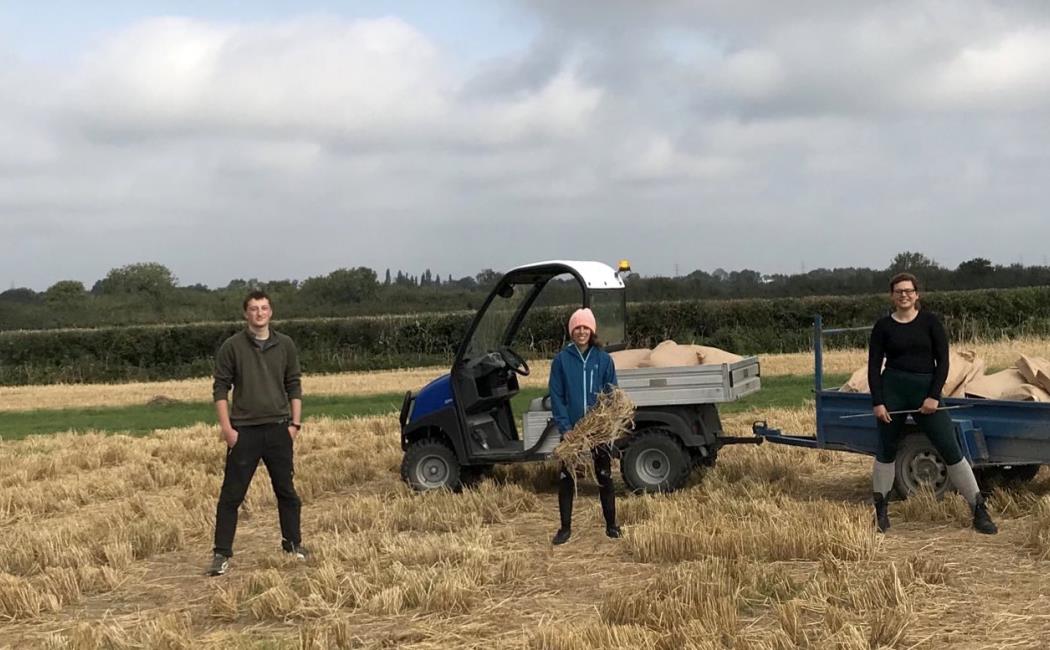It is cold and rainy in Dublin when I speak to Saudi Arabian alumna Nadia al Tamimi, currently in lockdown until December for the second time this year. The one good thing about this, Nadia tells me, is that she avoids commuting to work on her bike while the weather is so miserable. “Riding a bike in Dublin is not the same as riding a bike in KAUST,” she says, “Here cyclists share the bus lane!” A scary prospect she thought she’d never get used to.
Moving Countries
Nadia graduated from KAUST in May 2019 with a PhD and spent the rest of that year working on research in Professor Mark Tester’s lab. Her next move took her to Ireland to begin postdoctoral research at University College Dublin under the supervision of Dr. Sónia Negrão. After six years in KAUST, one of her challenges was confronting all the practical things she needed to accomplish when moving from one country to another.
“I’d forgotten how to do things like set up my bills and apply for a phone!” Nadia laughs, yet it is a reminder of how different the world is compared to KAUST and the incredible infrastructure it offers.
A love of plants
Since high school, Nadia knew she wanted to be a chemist. Once she began her studies she moved towards biochemistry and completed her MS in the Red Sea Research Center doing general bio-science and studying marine bacteria. Interestingly, her love of plants started from an early age thanks to summer holidays in the UK where Nadia spent many happy hours in her Grandmother’s lovely garden. But it wasn’t until she met Professor Mark Tester that she ever thought about studying plants scientifically.
Professor Tester is especially passionate about plants and after one of his lectures she decided she wanted to work with plants and big data rather than being so lab based. To switch she had to do a lot of research to catch up but through Professor Tester, Nadia got involved in a rice project. During the very first month of her PhD, Professor Tester put her in the deep end by sending her to Australia where she had to grow 1500 rice plants. Suddenly she was cultivating these plants from seeds.
“I believe this really helped me get to grips with my subject rather than just learning theory.” Nadia says, explaining that she propagated 500 varieties of rice plants from all around the world, growing them in a large facility in Australia called the Plant Accelerator; a hot house that mimicked the conditions of a rice paddy.
Within the first six months of her PhD, Nadia successfully published her first paper in Nature Communications, an accomplishment that can often take a year or two. This built her confidence, “and helped me overcome those imposter syndrome fears that most students suffer from at some stage,” she says with a laugh.
Initially, Nadia’s research had a focus on salinity stress on plants with rice being one of the most salt-sensitive cereals, whereas currently her research into barley looks at the stress of water logging. Her research uses four hundred different varieties known as the heritage lines, some of which date as far back as the 1850’s. These are obtained from seedbanks around the world. The theory, says Nadia, is that some of these older varieties - from pre-green revolution and plants being grown for high yield - may have retained genes that could be used for the future. In Ireland the issue is water logging and barley has a greater nutritional value as well as being more resilient than rice. The research is slow and can take a few years plus there are always risks to the crops being damaged by something unforeseen like a flood or sandstorm in desert conditions.
Piloting a drone
Essential to her current research is the use of a drone. Nadia plans to obtain her drone pilot license, once the winter and the weather in Ireland cooperate. She’s already completed a short course on air traffic law for the drone which is a hefty 25kg.
“It is used to capture image data, as well as equipped with special cameras to capture germination of plants, how well they are growing or if they are stressed. Utilizing advanced technology in plant science, it’s become much more interdisciplinary. Statisticians, engineers, drone pilots…” Nadia says.
Nadia feels lucky to be a woman in science at this time.“I am fortunate to be of a generation of Saudi women where the scholarships opened up, and allowed me to study abroad.” As she approaches the halfway mark for her postdoctoral research in Dublin, she keeps an eye out for potential future opportunities. “I do think about pivoting into industry because I have concerns about the pressures of staying in academia over the long term.” Nadia is quick to add, “my only criteria is that next, I’d really like to settle somewhere warm.”
Alumni Conversations
Catch up on the episode from July 2020 where Alumni Affairs spoke to
Nadia al Tamimi via zoom about her life in Dublin.



Leave a Reply
Your email address will not be published. Required fields are marked *